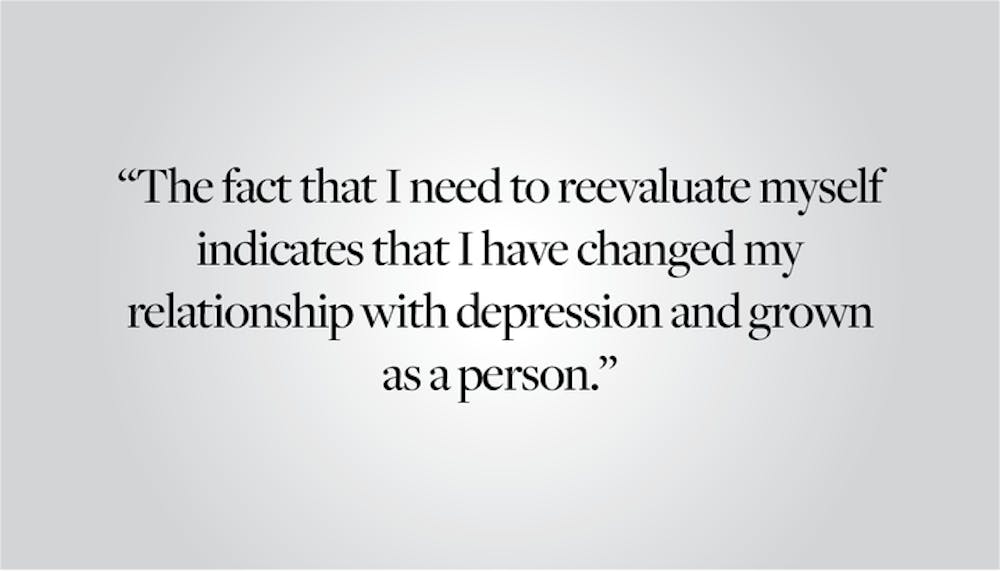Two years ago, my long-lasting depression culminated in a psychotic depressive episode, leaving me with no choice but to fully commit to getting better. I began taking mood stabilizers and started seeing a therapist regularly, despite finding the ordeal exhausting. Today, I feel more stable than I have ever felt before.
But the substantial improvement in my mental health came with a peculiar side effect — a severe identity crisis. Upon getting better, I quickly found out that I had built so much of my life on the assumption that I would always be unhappy. And when happiness became something attainable, much of this identity that I had developed lost meaning. I was forced to contend with my illness identity.
People develop an illness identity when they adopt “roles and attitudes” based on their mental illness diagnoses — embracing the idea that they are a patient synonymous with their symptoms. Negative illness identity can drive harmful coping mechanisms, lower self-esteem and may even worsen psychotic symptoms by creating additional stress. Persistent mental illness can also make it difficult to remember who you are without your symptoms. As a result, recovering from depression entails encountering unfamiliar emotions. Learning how to operate within a new worldview can be terrifying, making the strenuous process of getting better even more challenging.
But confronting and resolving self-defeating beliefs is an essential step to recovering from mental illness. And as painful as the resulting identity crisis may be, it’s a valuable and ultimately freeing experience.
As much as I hate to admit it, my mental illness became something I could exploit. By spinning my symptoms into quirks, I managed to suppress the intensity of my mental illness for far longer than I should have. There's comfort in identifying with the archetype of the tortured academic or artist. When you internalize the harmful attitudes arising from severe mental illness, it can make you feel unique, and feeling unique is almost as nice as being happy.
It was only once I received proper treatment for my mental illness that I realized how false this perception truly was: Unhappiness is not a unique quirk, and it’s certainly not sustainable. Figuring out who I want to be and how I want to live the rest of my life is a worthy obstacle I need to traverse in order to heal.
I perceive my ongoing identity crisis as a good sign. The fact that I need to reevaluate myself indicates that I have changed my relationship with depression and grown as a person. As scary as rediscovering an identity is, the process can be liberating, allowing you to find a purpose and discover your potential. It’s an opportunity to consider your own desires and passions for what they are, instead of using them to cope with untreated mental illness.
For example, the reason I got into creative writing in the first place was as a means of emotional catharsis. But my former writing was driven by rumination and anger. Now that my mental energy isn’t monopolized by struggling with mental illness, I’ve been able to engage with creative writing in a healthier manner. Contrary to the image of the tortured artist, my writing has actually become better as a result.
In some cases, the consequences of mental illness will never fully go away — symptoms can flare up and the memories of the dark periods of your life will remain. Actively addressing your mental health doesn’t mean that your experiences with mental illnesses are no longer part of who you are. What’s crucial is that mental illness no longer dictates your life and perception of self.
If you find yourself in the midst of an identity crisis during the recovery process, embrace it. The path could be a treacherous one, but it is not a challenge that you have to face alone. Speak to a therapist. Lean on your friends and family. Reshaping your identity around your passions rather than your “quirks” is worth the work.
Megan Slusarewicz ’23 can be reached at megan_slusarewicz@brown.edu. Please send responses to this opinion to letters@browndailyherald.com and other op-eds to opinions@browndailyherald.com.





